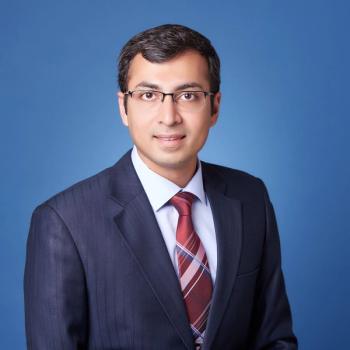
Here's what you need to do following big conferences like the 2024 APA Annual Meeting.

Here's what you need to do following big conferences like the 2024 APA Annual Meeting.

The scholarships will support up to 10 students and early career professionals.

Mental health equity is not possible without a diverse workforce. Recruiting diverse psychiatrists is the first step.

What if psychiatrists provided their insights to the community via residency?

A recent study serves as a model for future studies and lists several implications for the future of climate change psychiatric research.

What can you do to ensure your family is financially secure while still spending some of your hard-earned money?

"Organized medicine and specialty organizations are key pillars of support for individual physicians that provide opportunities to advocate for more funding and resources for the medical system and education."

Medical students are just now starting their yellow brick road journey…

The authors explore the impact of structural racism on psychiatry trainees and the patients they care for (and what can be done about it).

Series Editor, Frank A. Clark, MD, introduces the Black History Month series by talking about his greatest mentor when so few were available.

It is time for psychiatrists to tackle the toughest philosophical questions in their field.

An early career psychiatrist and resident psychiatrist reflect on their racialized experiences in predominantly white spaces and the impact on their lives.

If we fail to cultivate and exercise virtues such as wisdom, curiosity, intellect, aesthetic sensitivity, compassion, empathy, and generosity, we fail to exemplify human flourishing.

A lighthearted exploration of Erikson’s stages through residency training.

In psychiatry, as in every field of medicine, there is still gender disparity in salary and promotion.

A psychiatrist realizes he is completely powerless against his patient's opiate addiction.

In a tale of two cases, the author comes to realize he is but one agent of change in the lives of his patients.

During the first year of her child and adolescent psychiatry fellowship, this psychiatrist received an invaluable lesson regarding the importance of “treating the whole patient” in this case, a 16-year-old patient who is pregnant.

If you could talk to a clinician-in-training about how they can better help people suffering from addiction, what would you say? A Q&A between Arjune Rama, MD, and comic Marc Maron.

What if someone with “prescriptive privileges” looked at superficial symptoms only, and ordered antipsychotics without considering the bigger picture?

Two problems persist in the treatment of severe mental illness that constitute a barrier to effective patient-centered care: excessive reliance on a limited number of antipsychotic medications at the expense of other effective treatments, and the underutilization of other evidence-based treatment options.

Psychiatry is a profession that deeply needs honest workers who are willing to seek a knowing ignorance, to be dissatisfied, and to refuse to conform-doing so in the interest of the truth and of the profession, seeing both as inseparable.

Father and son psychiatrists offer the following advice, in the Oslerian spirit of honoring and guiding trainees-today’s psychiatric residents-who will become tomorrow’s psychiatric leaders.

There are no books written by, or even about, locum tenens psychiatrists. Why is that? Why is their story-the story of psychiatrists who "hold a place," participate a bit, and then move on-not shared? Is there nothing in their experience worth sharing?